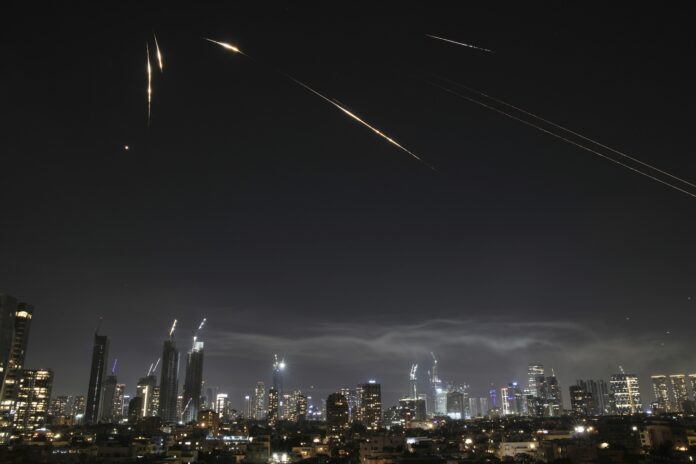- Israel’s strikes on Iran have significantly raised tensions, risking wider regional conflict involving the U.S.
- Iran may retaliate by targeting U.S. forces in the Middle East, potentially drawing America into direct military action.
- Trump has distanced himself from the conflict, aiming to keep diplomacy alive, but U.S. involvement could become unavoidable.
How Dangerous Is the Israel-Iran Conflict for the U.S.? Will Trump Get Involved?
The recent escalation between Israel and Iran has sent shockwaves far beyond the Middle East, raising urgent questions in Washington and around the world: How much danger does this conflict pose to the United States? And will former President Donald Trump, who still holds significant influence, decide to intervene?
A Conflict That Could Drag the U.S. Into War
Israel’s June 12 strikes on Iranian nuclear sites and military leaders marked a sharp escalation in tensions. Tehran’s response will almost certainly be swift and fierce, and the key concern for the U.S. is whether Iran’s retaliation will target American forces stationed across the Middle East. The region hosts thousands of U.S. troops in countries like Bahrain, Kuwait, Qatar, Saudi Arabia, and the United Arab Emirates—places well within range of Iran’s vast arsenal of ballistic missiles and drones.
History shows Iran’s readiness to strike American interests when pushed. After the U.S. assassinated Qasem Soleimani, the commander of Iran’s Quds Force, in 2020, Iran launched missile attacks on U.S. bases in Iraq. In the months following October 2023, Iran-backed militias fired dozens of rockets at U.S. positions in Iraq and Syria. This pattern raises fears that if Iran feels cornered by Israel’s recent offensive, it could escalate by directly attacking U.S. forces.
Trump’s Calculated Distance — But Is It Just Politics?
Despite the gravity of the situation, former President Trump has publicly distanced himself from Israel’s recent strikes. Why? According to experts like Daniel B. Shapiro, Trump sought to keep diplomatic channels with Iran open longer and hoped to avoid military conflict. Netanyahu’s decision to strike without delay seemingly undercut those efforts.
By downplaying U.S. involvement, Trump appears to be sending a message to Iran: the U.S. is not directly engaged, so Iran should avoid targeting American forces. This stance aims to prevent the conflict from spiraling into a broader regional war. But many analysts doubt that Trump can control events from the sidelines. If Iran accelerates its nuclear program or retaliates aggressively, the U.S. may have little choice but to respond militarily, regardless of Trump’s preferences.
The U.S. Military’s Dilemma: Defend Without Getting Dragged In?
Washington faces a difficult balancing act. It wants to support Israel’s right to defend itself and will provide missile defense assistance—such as deploying THAAD batteries in Israel to intercept incoming rockets. But at the same time, U.S. leaders are wary of becoming a direct target.
If Iran launches attacks on U.S. bases or personnel, the U.S. must respond firmly to protect its troops and uphold its regional credibility. Yet any American military action risks triggering a wider conflict involving Iranian proxies in Iraq, Syria, and Yemen, who could ramp up attacks against U.S. interests.
The Iraqi government, under heavy pressure, has been working to restrain Shiite militias backed by Iran, but this is an unstable situation. If militias act independently or with Tehran’s encouragement, the U.S. military could face a prolonged and complex fight far beyond Israel and Iran.
What Could Trigger Full U.S. Involvement?
A direct Iranian attack on U.S. bases or personnel would almost certainly draw a military response. But even if Iran refrains from hitting U.S. forces, there’s always the risk of accidental escalation or miscalculation. For example, if Iranian missiles accidentally hit civilian targets or if U.S. or Israeli forces strike Iranian sites outside the current scope, tensions could spiral uncontrollably.
Trump’s previous emphasis on “America First” and reluctance to enter new wars suggests he would be cautious about committing U.S. troops to a new conflict. However, if the Biden administration or future leaders see a direct threat to American lives or interests, they may act regardless of Trump’s position.
The Stakes for the U.S. Are High
This conflict is not just a regional dispute; it has the potential to pull the U.S. into a wider war with Iran. The presence of American forces across the Middle East, Iran’s willingness to use proxies and missiles, and the volatile political environment make this one of the most dangerous flashpoints in recent years.
Whether Trump or any U.S. leader decides to intervene directly will depend on how the situation unfolds—if Iran targets American lives or assets, or if the nuclear threat becomes urgent enough to warrant military action.
For now, the U.S. remains cautiously on the sidelines but stands ready to defend its allies and interests. The coming weeks will test whether diplomacy can hold or whether the region—and the U.S.—are headed toward a far more dangerous conflict.




